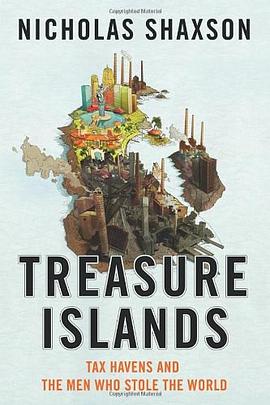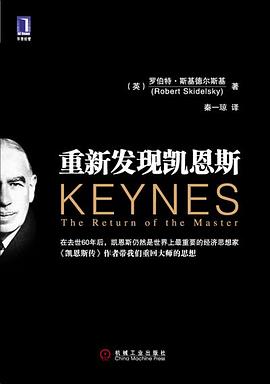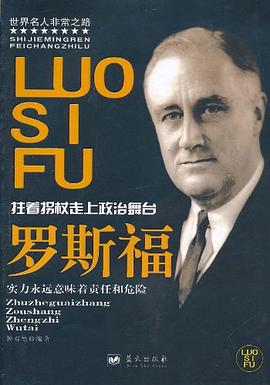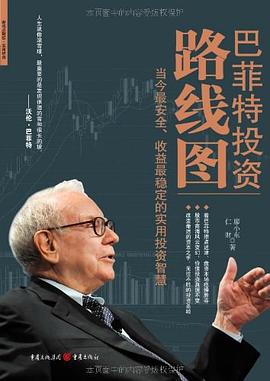

具体描述
Millions of people have a queasy feeling that something is not right in the global economy – but they struggle to put their fingers on what exactly the problem is. Treasure Islands at last tells the real story of where it all went wrong. This is the great untold story of globalisation.
Tax havens are not exotic, murky sideshows at the fringes of the world economy: they lie at its centre. Half of world trade flows, at least on paper, through tax havens. Every multinational corporation uses them routinely. The biggest users of tax havens by far are not terrorists, spivs, celebrities or Mafiosi – but banks.
Tax havens are the ultimate source of strength for our global elites. Just as European nobles once consolidated their unaccountable powers in fortified castles, to better subjugate and extract tribute from the surrounding peasantry, so financial capital has coalesced in their modern equivalent today: the tax havens. In these fortified nodes of secret, unaccountable political and economic power, financial and criminal interests have come together to capture local political systems and turn the havens into their own private law-making factories, protected against outside interference by the world’s most powerful countries – most especially Britain. Treasure Islands will, for the first time, show the blood and guts of just how they do it.
Tax havens aren’t just about tax. They are about escape – escape from criminal laws, escape from creditors, escape from tax, escape from prudent financial regulation – above all, escape from democratic scrutiny and accountability. Tax havens get rich by taking fees for providing these escape routes. This is their core line of business. It is what they do.
These escape routes transform the merely powerful into the untouchable. “Don’t tax or regulate us or we will flee offshore!” the financiers cry, and elected politicians around the world crawl on their bellies and capitulate. And so tax havens lead a global race to the bottom to offer deeper secrecy, ever laxer financial regulations, and ever more sophisticated tax loopholes. They have become the silent battering rams of financial deregulation, forcing countries to remove financial regulations, to cut taxes and restraints on the wealthy, and to shift all the risks, costs and taxes onto the backs of the rest of us. In the process democracy unravels and the offshore system pushes ever further onshore. The world’s two most important tax havens today are United States and Britain.
Without understanding offshore, we will never understand the history of the modern world.
Poverty in Africa? Offshore is at the heart of the matter. Industrial-scale corruption and the wholesale subversion of governments by criminalised interests, across the developing world? Offshore is central to the story, every time. The systematic looting of the former Soviet Union and the merging of the nuclear-armed country’s intelligence apparatus with organized crime, is a story that unfolds substantially in London and its offshore satellites. Saddam Hussein used tax havens to buttress his power, as does North Korea’s Kim Jong-Il today. Prime Minister Silvio Berlusconi’s strange hold over Italian politics is very much an offshore tale. The Elf Affair, Europe’s biggest ever corruption scandal, had secrecy jurisdictions at its core. Arms smuggling to terrorist organisations? The growth of mafia empires? Offshore. You can only fit about $1 million into a briefcase: without offshore, the illegal drugs trade would be a fraction of its size.
Private equity and hedge funds? Goldman Sachs? Citigroup? These are all creatures of offshore. The scandals of Enron, Parmalat, Long Term Capital Management, Lehman Brothers, AIG — and many more? Tax havens lay behind them all. The rise of multinationals, the explosion of debt in advanced economies since the 1970s is substantially an offshore tale. Complex monopolies, frauds, insider trading rings — these corruptions of free markets always have tax havens at their heart. As Treasure Islands explains in vivid, thrilling, horrifying detail, every big financial crisis since the 1970s – including the great global crisis that erupted in 2007 – has been a creature of the tax havens.
These problems all have other explanations too. Tax havens are never the only story, because offshore exists only in relation to elsewhere. That is why it is called offshore.
Without understanding the tax havens, or the secrecy jurisdictions as I often prefer to call them, we cannot understand the world. Treasure Islands at last starts to fill this gigantic hole in modern history.
In short, it is the most important exposé of tax havens ever published.
作者简介
Nicholas Shaxson is a British writer, journalist and investigator. He is author of the acclaimed 2007 book Poisoned Wells: the Dirty Politics of African Oil, an Associate Fellow of Chatham House (the Royal Institute of African Affairs in London) and, following completion of Treasure Islands in 2010, a full-time writer and researcher for the Tax Justice Network, an expert-led group focused on tax and tax havens. Since 1993 he has written extensively on global business and politics for the Financial Times, Reuters, the Economist and its sister publication the Economist Intelligence Unit, International Affairs, Foreign Affairs, the American Interest, the BBC, Africa Confidential, African Energy, and a wide range of others.
He was born in Malawi in 1966 and has lived at various times in India, Brazil, England, Lesotho, Spain, Angola, South Africa, Germany and the Netherlands. He currently lives with his partner and their two children in Zürich, Switzerland.
目录信息
读后感
评分
评分
评分
评分
用户评价
《Treasure Islands》这个书名,在第一眼看到的时候,就如同在平静的湖面上投入了一颗石子,激起了我心中层层涟漪的遐想。我一直痴迷于那些能够带领我暂时逃离现实、进入一个充满奇幻色彩的世界的故事,而“Treasure Islands”这个名字,恰好唤醒了我内心深处对于未知与冒险的渴望。我猜想,这本书很可能是一部充满想象力的冒险小说,它或许会描绘出一幅幅惊心动魄的航海图景,带领读者去探索那些隐藏在茫茫大海中的神秘岛屿。我期待作者能够用生动细腻的笔触,勾勒出那些令人惊叹的自然风光,同时也能塑造出性格鲜明、令人难忘的角色,让他们在面对各种挑战时,展现出非凡的勇气与智慧。我希望这本书的情节能够跌宕起伏,充满意想不到的转折,让我在阅读过程中,始终保持高度的紧张感和好奇心。这本书是否会涉及到一些古老的传说、神秘的地图,或者是一些关于失落文明的线索?我迫切地想知道,那些“Treasure Islands”究竟隐藏着怎样的秘密,又将带领主角们走向怎样的命运。
评分《Treasure Islands》这个书名,本身就带着一种古老而神秘的诱惑力。我一直对那些关于海盗、探险和失落宝藏的故事情有独钟,仿佛它们能够带我远离现实的平淡,进入一个充满刺激与未知的世界。这本书的封面,如果我记得没错的话,似乎有一种淡淡的复古感,暗示着故事可能发生在很久以前,或者与某个历史事件有关。我脑海中立刻浮现出波涛汹涌的大海,隐藏在浓雾中的岛屿,以及那些传说中的宝藏。我猜想,这本书很可能讲述了一个关于勇气、智慧和毅力的冒险故事,主角们为了寻找传说中的宝藏,踏上了充满危险的旅程。我期待作者能够塑造出性格鲜明、有血有肉的角色,让他们在面对艰难险阻时,展现出人性的光辉。我希望这本书的情节能够引人入胜,扣人心弦,让我在阅读过程中,感受到肾上腺素飙升的快感。同时,我也希望这本书能够带给我一些关于历史、地理或者文化方面的知识,让我在享受故事的同时,也能有所收获。这本书是否会揭示出一些不为人知的历史秘密?我迫切地想知道,那些“Treasure Islands”究竟隐藏着怎样的魅力,又将给主角们带来怎样的命运。
评分我必须承认,《Treasure Islands》这本书的书名,在第一眼看到的时候,就勾起了我内心深处对于未知与探索的渴望。我一直认为,人类骨子里就流淌着冒险的血液,而“宝藏”这个词,更是激发了无数关于财富、权力、荣耀以及失落文明的遐想。这本书的封面设计,虽然简单,却充满了某种神秘的仪式感,仿佛是某种古老地图的一角,或者是一件饱经沧桑的信物。这种视觉上的暗示,让我对书中所描绘的世界充满了好奇。我猜想,这本书很可能是一部格局宏大、情节跌宕起伏的冒险小说,它或许会带领读者穿越波涛汹涌的大海,踏足人迹罕至的荒岛,去探寻那些隐藏在时间深处的秘密。我期待作者能够用生动的笔触,描绘出令人惊叹的自然风光,同时也能塑造出鲜活饱满的人物形象,让他们在面对重重困难时,展现出人性的光辉与脆弱。这本书会不会涉及到一些历史传说、神话故事,或者是一些未解之谜?我希望它不仅仅是一个简单的寻宝故事,更能包含一些关于历史、文化,甚至哲学层面的思考。我希望它能够让我跟随主角们一起经历恐惧、失落、兴奋和喜悦,最终在阅读结束时,留下一份深刻的感悟。这本书会不会是一场关于勇气与智慧的较量?我迫切地想知道,那些“Treasure Islands”究竟蕴含着怎样的吸引力,又将带给人们怎样的改变。
评分《Treasure Islands》这个书名,仿佛自带一种神秘的光环,立刻就吸引住了我的目光。我一直对那些充满未知和惊喜的故事有着天然的亲近感,而“宝藏”和“岛屿”这两个词的组合,更是激起了我内心深处对探险的向往。我猜想,这本书很可能是一部情节跌宕起伏的冒险小说,它或许会带领读者穿越波涛汹涌的大海,登陆那些人迹罕至的神秘岛屿,去追寻传说中的宝藏。我期待作者能够用细腻的笔触,描绘出令人惊叹的自然风光,同时也能塑造出有血有肉、个性鲜明的人物形象,让他们在面对重重困难时,展现出人性的光辉与脆弱。我希望这本书的情节能够引人入胜,扣人心弦,让我沉浸其中,仿佛身临其境。同时,我也希望这本书能够带给我一些关于历史、地理,甚至是一些关于人生哲理的思考。这本书是否会涉及一些古老的传说、神秘的符号,或者是一些关于失落文明的故事?我迫切地想知道,那些“Treasure Islands”究竟隐藏着怎样的秘密,又将给主角们带来怎样的命运。
评分这本书的封面就有一种古老而神秘的吸引力,那种泛黄的书页边缘和粗糙的纸质触感,仿佛在诉说着一个尘封已久的故事。我拿到《Treasure Islands》的时候,就被它散发出的复古气息深深吸引了。我一直是个对历史和冒险故事情有独钟的人,尤其是那种涉及未知海域、失落宝藏和神秘地图的题材。这本书的书名本身就充满了诱惑力,让我的脑海中立刻勾勒出无垠的海洋、隐秘的岛屿,以及隐藏在其中的无数财富和危险。我毫不犹豫地翻开了第一页,心中充满了期待,希望能够跟随作者的笔触,一同踏上一场惊心动魄的寻宝之旅。我猜测,这本书很可能描绘了一个宏大而复杂的寻宝过程,其中会穿插着各种惊险的遭遇,或许还有一些关于历史谜团的揭示。我期待作者能够巧妙地将历史的厚重感与冒险的刺激感相结合,创造出一个既有深度又不失趣味的故事。这本书会不会是一部关于勇气、智慧与毅力的史诗?我迫不及待地想要知道,那些“Treasure Islands”究竟隐藏着怎样的秘密,又将带领主角们走向何方。我想象着,那些岛屿可能并非只是地理上的存在,更可能象征着人生中不同阶段的挑战与机遇,而寻宝的过程,也或许是主角们自我发现和成长的旅程。我希望这本书能够给我带来一种沉浸式的阅读体验,让我暂时忘却现实中的烦恼,全身心地投入到那个充满传奇色彩的世界中去。
评分我不得不承认,《Treasure Islands》这个书名,如同一颗闪烁的星辰,立刻吸引了我对未知世界的目光。我一直对那些充满冒险、探索和传奇色彩的故事有着一种难以言喻的热情,而这个书名,仿佛就是为我量身定做的。我猜想,这本书可能是一部关于寻宝的史诗,它或许会带领读者穿越波澜壮阔的大海,去探访那些隐藏在地图边缘的神秘岛屿。我期待作者能够以其独特的视角,描绘出那些令人心醉的异域风情,同时也能塑造出鲜活饱满的角色,让他们在冒险的征途中,经历成长与蜕变。我希望这本书的情节能够引人入胜,扣人心弦,让我沉浸在故事的世界里,忘记时间的流逝。我更希望它能在带给我精彩故事的同时,也能引发我对人生、对探索、对未知的一些更深层次的思考。这本书是否会涉及到一些古老的谜团,或者是一些关于文明兴衰的线索?我迫切地想知道,那些“Treasure Islands”究竟隐藏着怎样的诱惑,又将给追寻者们带来怎样的命运。
评分当我第一次在书店的琳琅满目中看到《Treasure Islands》这本书时,它那简洁却充满力量的书名,便在我心中激起了一圈涟漪。我一直对那些关于探索未知、发现惊喜的故事有着莫名的偏爱,而“Treasure Islands”这个名字,无疑是在暗示着一段充满传奇色彩的旅程。我猜想,这本书很可能是一部情节跌宕、充满想象力的冒险小说。它或许会带领读者穿越广袤无垠的海洋,去探寻那些隐藏在世界各个角落的神秘岛屿,而这些岛屿之上,则可能埋藏着惊人的财富,抑或是失落的文明。我期待作者能够用精湛的文笔,描绘出那些令人心驰神往的异域风光,同时也能塑造出个性鲜明、有血有肉的角色。我希望这本书的情节能够环环相扣,充满悬念,让我欲罢不能。同时,我也希望它能够给我带来一些关于勇气、智慧和坚持的启示。这本书是否会揭示出一些关于历史的真相,或者是一些关于人性的深刻洞察?我迫切地想要翻开这本书,去揭开那些“Treasure Islands”的神秘面纱。
评分《Treasure Islands》这个书名,就像一把钥匙,瞬间打开了我对未知世界的大门。我向来对那些充满神秘色彩和冒险元素的故事情有独钟,而这个书名,似乎恰好满足了我内心深处对探索与发现的渴望。我猜测,这本书很可能是一部史诗般的冒险巨作,它会带领读者踏上一段惊心动魄的寻宝之旅,穿越茫茫大海,去探寻那些隐藏在遥远海域的神秘岛屿。我期待作者能够用引人入胜的笔触,描绘出那些令人惊叹的自然景观,同时也能塑造出性格各异、有血有肉的人物形象,让他们在面对重重困难时,展现出人性的光辉与坚韧。我希望这本书的情节能够跌宕起伏,充满悬念,让我为主角们的命运而牵挂。同时,我也希望它能够给我带来一些关于历史、文化,甚至是一些关于人生价值的思考。这本书是否会涉及到一些古老的传说、神秘的地图,或者是一些关于失落文明的故事?我迫切地想知道,那些“Treasure Islands”究竟隐藏着怎样的吸引力,又将带给主角们怎样的结局。
评分当我第一次瞥见《Treasure Islands》这个书名时,我的脑海中瞬间闪过无数关于冒险、财富和神秘岛屿的画面。我一直痴迷于那些能够带领我逃离现实、进入奇幻世界的书籍,而这个书名恰好满足了我对于探索未知的渴望。我猜想,这本书很可能是一部充满奇思妙想的冒险小说,它或许会描绘一个由碧蓝的海水、茂密的热带雨林和隐藏在深处的古老遗迹构成的世界。我期待作者能够用生动细腻的笔触,描绘出那些令人惊叹的自然风光,同时也能塑造出性格鲜明、令人难忘的角色。我希望这本书的情节能够跌宕起伏,充满意想不到的转折,让我在阅读过程中,始终保持高度的紧张感和好奇心。这本书会不会涉及到一些古老的地图、神秘的密码,或者是一些被遗忘的文明?我希望它能够给我带来一种身临其境的体验,让我仿佛置身于那个充满危险与机遇的世界,与主角们一同经历他们的命运。我迫切地想知道,那些“Treasure Islands”究竟隐藏着怎样的秘密,又将带领主角们走向何方。
评分当我第一次在书店的架子上看到《Treasure Islands》时,我的目光就被它那充满异域风情的书名所吸引。我一直对那些遥远而神秘的国度,以及它们隐藏的古老传说充满了好奇。这本书的书名,似乎在暗示着一个关于探索、发现和财富的故事,这正是我一直以来所钟爱的题材。我迫不及待地想要知道,作者是如何描绘这些“Treasure Islands”的,它们是否真的如书名所暗示的那样,充满了等待被发掘的宝藏?我猜测,这本书很可能是一部充满想象力的冒险史诗,它可能会带领读者进入一个充满奇幻色彩的世界,去经历一系列惊心动魄的冒险。我期待作者能够运用丰富的想象力,创造出令人难忘的角色和情节,让他们在充满未知的旅途中,克服重重困难,最终实现自己的目标。这本书会不会涉及到一些古代文明的遗迹,或者是一些失落的神器?我希望它能够给我带来一种身临其境的阅读体验,让我仿佛置身于那个神秘的世界,与主角们一同经历他们的喜怒哀乐。这本书是否会探讨人性的贪婪与纯真,抑或是关于友谊与背叛?我迫切地想要翻开这本书,去揭开它隐藏的秘密。
评分看了兩天終於看完了.以後不怕VIE,SPE了.隱隱覺得他是個左翼,並有點overrate凱恩斯主義了.
评分看了兩天終於看完了.以後不怕VIE,SPE了.隱隱覺得他是個左翼,並有點overrate凱恩斯主義了.
评分看了兩天終於看完了.以後不怕VIE,SPE了.隱隱覺得他是個左翼,並有點overrate凱恩斯主義了.
评分看了兩天終於看完了.以後不怕VIE,SPE了.隱隱覺得他是個左翼,並有點overrate凱恩斯主義了.
评分看了兩天終於看完了.以後不怕VIE,SPE了.隱隱覺得他是個左翼,並有點overrate凱恩斯主義了.
相关图书
本站所有内容均为互联网搜索引擎提供的公开搜索信息,本站不存储任何数据与内容,任何内容与数据均与本站无关,如有需要请联系相关搜索引擎包括但不限于百度,google,bing,sogou 等
© 2026 book.quotespace.org All Rights Reserved. 小美书屋 版权所有




















